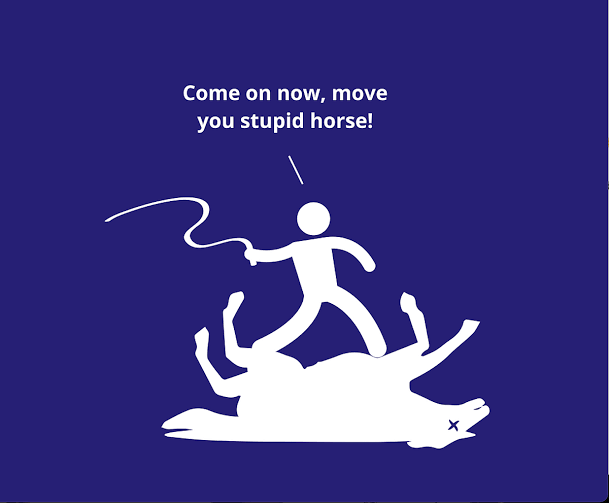Dead Horse Theory: 3 Ways to Stop Wasting Energy on Lost Causes
Have you ever found yourself stubbornly holding on to something that’s clearly not working: whether it’s a failing project, a toxic relationship, or an outdated strategy? You’re not alone. The Dead Horse Theory humorously highlights how people, companies, and even entire societies refuse to accept failure, wasting valuable time and energy trying to revive what’s already lost. So, how do you recognize when you’re stuck in this trap? More importantly, how can you break free without guilt or regret? In this article delight, we’ll explore three practical ways to stop beating a dead horse and start channeling your energy where it truly matters.
What is the Dead Horse Theory?
The Dead Horse Theory is a satirical metaphor that describes how people, organizations, and even entire societies continue investing time, energy, and resources into failed strategies rather than accepting reality. Instead of moving on, they try tactics like:
- Buying a better saddle (hoping small changes will fix the issue).
- Hiring an expert (expecting a miracle solution).
- Replacing the rider (blaming others rather than addressing the real problem).
- Redefining “dead” (convincing themselves that there’s still hope).
But no matter what strategy is used, the outcome doesn’t change: the horse is dead, and progress is impossible.
3 Ways to Stop Wasting Energy on Lost Causes
Recognize the Warning Signs Early
Some warning signs include:
- Repeating the same efforts with no improvement.
- Ignoring facts and logic in favor of emotional attachment.
- Constantly justifying why you need to keep going.
- Feeling drained and frustrated, yet unable to let go.
Reframe Letting Go as a Strength, Not a Failure
Try shifting your mindset by:
- Focusing on opportunity costs—every minute spent on a lost cause is a minute taken from something better.
- Viewing setbacks as learning experiences rather than personal failures.
Step Away and Embrace What’s Next
Once you recognize a lost cause, the next step is taking action. Here’s how:
- Set a clear exit strategy—decide when and how you’ll walk away.
- Redirect your energy—invest your efforts into something with real potential.
- Seek fresh perspectives—sometimes an outside view can confirm what you already suspect.
- Celebrate the decision—acknowledge the courage it takes to move on.
Final Takeaway | Dead Horse Theory
We all fall into the Dead Horse Trap at some point, whether in our personal lives, careers, or relationships. The Dead Horse Theory reminds us that no matter how much effort we put into something that’s no longer working, the outcome won’t change. Recognizing when to step away frees up valuable time, energy, and resources that can be redirected toward new opportunities, healthier relationships, and more fulfilling pursuits.
Further Insights, read The Dip by Seth Godin https://amzn.in/d/4GyaJkk
Read also : Why HERO Matters: The 4 Pillars of Psychological Capital https://thebrightdelights.com/why-hero-matters-the-4-pillars-of-psychological-capital/
